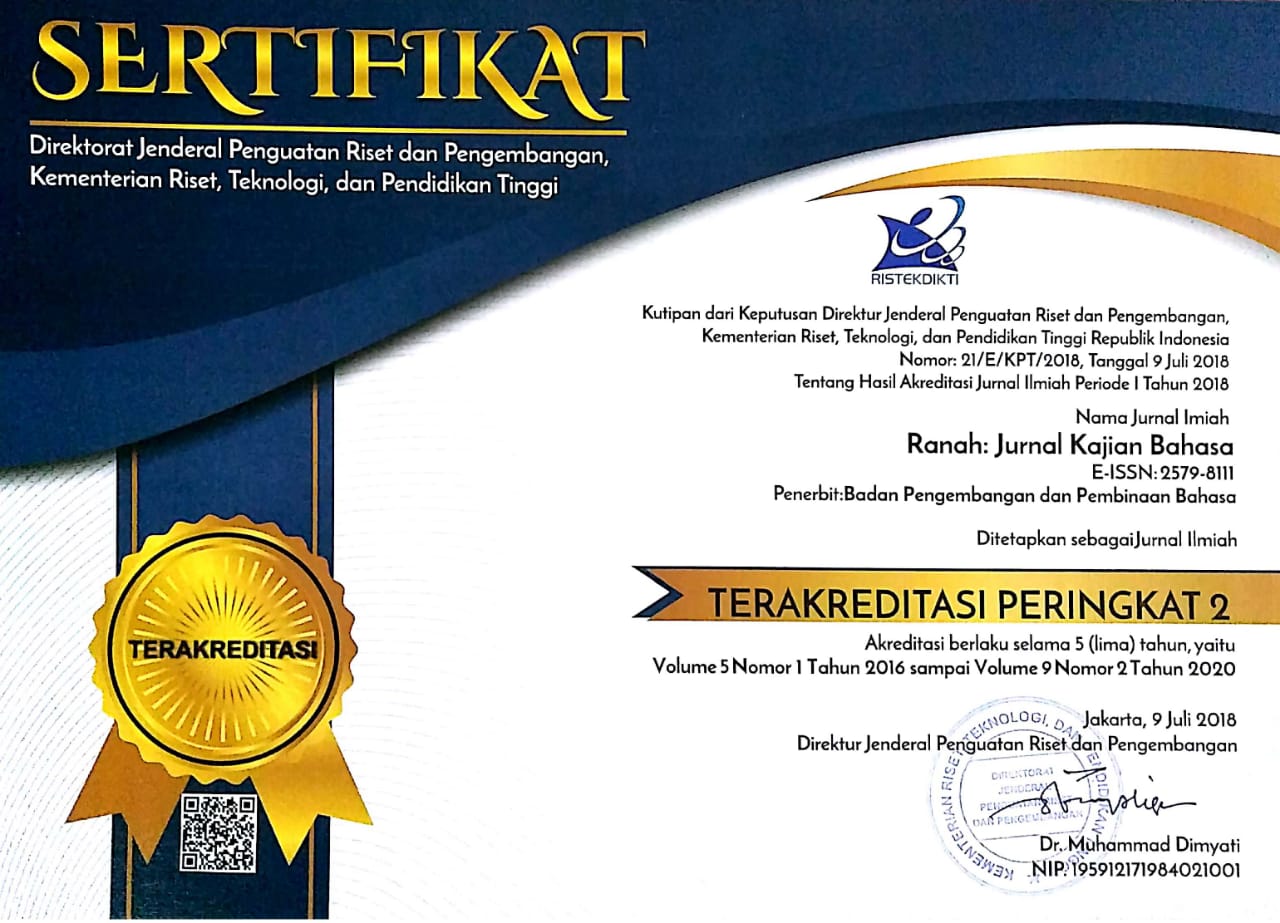Opini Publik terhadap Debat Capres 2024: Analisis Sentimen dalam Komentar Live Youtube KPU RI
Abstract
The presidential debate is a pivotal moment in the election process that influences public opinion about candidates. This study aims to analyze public sentiment regarding the 2024 presidential debate through comments on the live broadcast of the debate on the official YouTube channel of the Indonesian General Elections Commission (KPU RI). A qualitative descriptive method was employed for this research. The data comprised comments collected from the live-streamed debate on the KPU RI’s official YouTube channel using a web scraping technique, utilizing the Python library chat-downloader to extract public comments from the debate videos. The data were analyzed using the BERT (Bidirectional Encoder Representations from Transformers) model adapted for the Indonesian language. The findings revealed that during the first debate, neutral comments dominated (76.3%), followed by positive comments (14.7%) and negative comments (9.0%). Sentiment toward the Anies-Muhaimin pair was predominantly positive (47.5%), while the Prabowo-Gibran pair faced a dominance of negative sentiment (34.5%). The Ganjar-Mahfud pair received mostly neutral sentiment (50.2%). During the second debate, overall negative sentiment increased to 32.1%, while positive sentiment decreased to 27.8%. A word cloud analysis revealed that terms like mantap (excellent), cerdas (intelligent), and menang (win) frequently appeared in positive comments, whereas terms like blunder and janji manis (sweet promises) dominated negative sentiment, highlighting public focus on the candidates’ conveyed issues. These findings illustrate the dynamics of public opinion during the debates and provide strategic insights for the KPU and campaign teams in crafting more effective communication strategies.
Abstrak
Debat calon presiden (capres) merupakan momen penting dalam pemilihan presiden yang memengaruhi opini publik terhadap kandidat. Penelitian ini bertujuan untuk menganalisis sentimen publik terhadap debat capres tahun 2024 melalui komentar pada siaran langsung YouTube Komisi Pemilihan Umum (KPU) RI. Penelitian ini menggunakan metode deskriptif kualitatif. Data penelitian ini berupa komentar yang diperoleh dari siaran langsung debat Capres di saluran YouTube resmi Komisi Pemilihan Umum (KPU) RI. Pengumpulan data dilakukan menggunakan teknik web scraping, dengan memanfaatkan pustaka Python chat-downloader untuk mengunduh komentar-komentar publik dari video debat. Data dianalisis dengan model BERT (Bidirectional Encoder Representations from Transformers) yang diadaptasi untuk bahasa Indonesia. Hasil penelitian menunjukkan bahwa pada debat pertama, komentar netral mendominasi (76,3%), diikuti oleh komentar positif (14,7%) dan negatif (9,0%). Sentimen terhadap pasangan Anies-Muhaimin didominasi positif (47,5%), sementara pasangan Prabowo-Gibran menghadapi dominasi sentimen negatif (34,5%). Pasangan Ganjar-Mahfud lebih banyak menerima sentimen netral (50,2%). Pada debat kedua, sentimen negatif secara keseluruhan meningkat menjadi 32,1%, sementara sentimen positif menurun menjadi 27,8%. Analisis word cloud mengungkapkan bahwa istilah seperti mantap, cerdas, dan menang sering muncul dalam komentar positif, sementara istilah seperti blunder dan janji manis mendominasi sentimen negatif, menunjukkan fokus publik pada isu-isu yang disampaikan kandidat. Temuan ini menggambarkan dinamika opini publik selama debat dan memberikan masukan strategis bagi KPU serta tim kampanye dalam menyusun strategi komunikasi yang lebih efektif.
Full Text:
PDFReferences
Abate, J., & Rashid, F. (2024). A review of sentiment analysis for Afaan Oromo: Current trends and future perspectives. Natural Language Processing Journal, 6, 100051. https://doi.org/10.1016/j.nlp.2023.100051
Annas, F. B., Petranto, H. N., & Pramayoga, A. A. (2019). Opini publik dalam polarisasi politik di media sosial. Jurnal PIKOM (Penelitian Komunikasi Dan Pembangunan), 20(2), 111-122. https://doi.org/10.31346/jpikom.v20i2.2006
Benoit, W. L., Hansen, G. J., & Verser, R. M. (2003). A meta-analysis of the effects of viewing US presidential debates. Communication Monographs, 70(4), 335-350. https://doi.org/10.1080/0363775032000179133
Bo, P., & Lee, L. (2008). Opinion mining and sentiment analysis foundations and trends in information retrieval. Foundations and Trends in Information Retrieval, 2(1-2), 1135. https://doi.org/10.1561/1500000011
Budhirianto, S. (2015). Sikap Masyarakat Terhadap Debat Calon Presiden pada Pemilu Presiden 2014 di RCTI. Jurnal Penelitian Komunikasi, 18(2). https://doi.org/10.20422/jpk.v18i2.44
Chatamallah, M. (2007). Opini Publik dan Kebijakan Pemerintah. MediaTor (Jurnal Komunikasi), 8(2), 249-256. https://doi.org/10.29313/mediator.v8i2.1253
Devlin, J. (2018). Bert: Pre-training of deep bidirectional transformers for language understanding. ArXiv Preprint ArXiv:1810.04805.
Dewi, L. C., & Chandra, A. (2019). Social media web scraping using social media developers API and regex. Procedia Computer Science, 157, 444-449. https://doi.org/10.1016/j.procs.2019.08.237
Haryanto, B., Ruldeviyani, Y., Rohman, F., T.N., J. D., Magdalena, R., & Muhamad, Y. F. (2019). Facebook Analysis of Community Sentiment on 2019 Indonesian Presidential Candidates from Facebook Opinion Data. Procedia Computer Science, 161, 715-722. https://doi.org/10.1016/j.procs.2019.11.175
Herdiansyah, H., Roestam, R., Kuhon, R., & Santoso, A. S. (2023). Their post tell the truth: Detecting social media users mental health issues with sentiment analysis. Procedia Computer Science, 216, 691-697. https://doi.org/10.1016/j.procs.2022.12.185
Hswen, Y., Qin, Q., Williams, D. R., Viswanath, K., Subramanian, S. V, & Brownstein, J. S. (2020). Online negative sentiment towards Mexicans and Hispanics and impact on mental well-being: A time-series analysis of social media data during the 2016 United States presidential election. Heliyon, 6(9), https://doi.org/10.1016/j.heliyon.2020.e04910
Iyengar, S., & Kinder, D. R. (2010). News that matters: Television and American opinion. University of Chicago Press. https://doi.org/10.7208/chicago/9780226388601.001.0001
Jamil, A., Cahaya, S., & Kusuma, T. C. (2022). Pengaruh Opini Publik terhadap Kebijakan Hukum di Indonesia. Jurnal Pendidikan Dan Konseling (JPDK), 4(5), 8264-8270.
Khusna, I. H. (2016). Opini publik cerminan dari pemerintah dan kebijakannya. Promedia, II (1), 120-136.
Kurniawati, W., Ekoyanantiasih, R., Yulianti, S., Hardaniawati, M., Sasangka, S. S. T. W., & Firdaus, W. (2022). Kekuasaan Semantik dalam Analisis Wacana Kritis Debat Capres-Cawapres. Ranah: Jurnal Kajian Bahasa, 11(1), 165-179. https://doi.org/10.26499/rnh.v11i1.4966
Liu, D., & Lei, L. (2018). The appeal to political sentiment: An analysis of Donald Trump's and Hillary Clinton's speech themes and discourse strategies in the 2016 US presidential election. Discourse, Context & Media, 25, 143-152. https://doi.org/10.1016/j.dcm.2018.05.001
Masitah, A. D., & Dewi, D. S. K. (2022). Analisis Opini Publik Berdasarkan Teori Agenda Setting Pada Proses Perencanaan Pemindahan IKN. JISIP (Jurnal Ilmu Sosial Dan Pendidikan), 6(3). https://doi.org/10.58258/jisip.v6i3.3374
McKinney, M. S., & Warner, B. R. (2013). Do presidential debates matter? Examining a decade of campaign debate effects. Argumentation and Advocacy, 49(4), 238-258. https://doi.org/10.1080/00028533.2013.11821800
Punetha, N., & Jain, G. (2023). Bayesian game model based unsupervised sentiment analysis of product reviews. Expert Systems with Applications, 214, 119128. hhttps://doi.org/10.1016/j.eswa.2022.119128
Putra, A. T. W., & Triayudi, A. (2022). Analisis Sentimen Pembelajaran Daring menggunakan Metode Naïve Bayes, KNN, dan Decision Tree. Jurnal JTIK (Jurnal Teknologi Informasi Dan Komunikasi), 6(1), 21. https://doi.org/10.35870/jtik.v6i1.368
Rasappan, P., Premkumar, M., Sinha, G., & Chandrasekaran, K. (2024). Transforming sentiment analysis for e-commerce product reviews: Hybrid deep learning model with an innovative term weighting and feature selection. Information Processing & Management, 61(3), 103654. https://doi.org/10.1016/j.ipm.2024.103654
Rianto, P. (2010). Opini Publik, Agenda Setting, dan Kebijakan Publik. Jurnal Komunikasi, 5(1), 31-40. https://doi.org/10.20885/komunikasi.vol5.iss1.art4
Rifai, B., Febryanto, B. D., Yulianto, F., & Reflianah, N. (2021). Analisis Sentimen Opini Publik Terhadap Penerapan Kebijakan Social Distancing Dalam Pencegahan Covid-19. Paradigma, 23(1).
Ritonga, E. Y. (2018). Teori agenda setting dalam ilmu komunikasi. JURNAL SIMBOLIKA: Research and Learning in Communication Study (E-Journal), 4(1), 32-41. https://doi.org/10.31289/simbollika.v4i1.1460
Saputra, R., Mustakim, M., Okfalisa, O., & Ridwan, M. (n.d.). Menentukan Popularitas Calon Presiden dan Tren pada Pilpres 2019 menggunakan Algoritma DBSCAN. Seminar Nasional Teknologi Informasi Komunikasi Dan Industri, 123-130.
Savitri, N. L. P. C., Rahman, R. A., Venyutzky, R., & Rakhmawati, N. A. (2021). Analisis klasifikasi sentimen terhadap sekolah daring pada twitter menggunakan Supervised Machine Learning. Jurnal Teknik Informatika Dan Sistem Informasi, 7(1). https://doi.org/10.28932/jutisi.v7i1.3216
Serrano-Guerrero, J., Bani-Doumi, M., Romero, F. P., & Olivas, J. A. (2024). A 2-tuple fuzzy linguistic model for recommending health care services grounded on aspect-based sentiment analysis. Expert Systems with Applications, 238, 122340. https://doi.org/10.1016/j.eswa.2023.122340
Vonega, D. A., Fadila, A., & Kurniawan, D. E. (2022). Analisis Sentimen Twitter Terhadap Opini Publik Atas Isu Pencalonan Puan Maharani dalam PILPRES 2024. Journal of Applied Informatics and Computing, 6(2), 129-135. https://doi.org/10.30871/jaic.v6i2.4300
Wahid, U. (2016). Komunikasi politik: Teori, konsep, dan aplikasi pada era media baru. Bandung: Simbiosa Rekatama Media.
Wang, Z., Hu, S., & Liu, W. (2024). Product feature sentiment analysis based on GRU-CAP considering Chinese sarcasm recognition. Expert Systems with Applications, 241, 122512. https://doi.org/10.1016/j.eswa.2023.122512
Watrianthos, R., Giatman, M., Simatupang, W., Syafriyeti, R., & Daulay, N. K. (2022). Analisis Sentimen Pembelajaran Campuran Menggunakan Twitter Data. Jurnal Media Informatika Budidarma, 6(1), 166-170. https://doi.org/10.30865/mib.v6i1.3383
Xu, Q. A., Chang, V., & Jayne, C. (2022). A systematic review of social media-based sentiment analysis: Emerging trends and challenges. Decision Analytics Journal, 3, 100073. https://doi.org/10.1016/j.dajour.2022.100073
Yadav, A., & Vishwakarma, D. K. (2020). Sentiment analysis using deep learning architectures: a review. Artificial Intelligence Review, 53(6), 4335-4385. https://doi.org/10.1007/s10462-019-09794-5
Yue, L., Chen, W., Li, X., Zuo, W., & Yin, M. (2019). A survey of sentiment analysis in social media. Knowledge and Information Systems, 60, 617-663. https://doi.org/10.1007/s10115-018-1236-4
DOI: https://doi.org/10.26499/rnh.v13i2.6063
Refbacks
- There are currently no refbacks.








